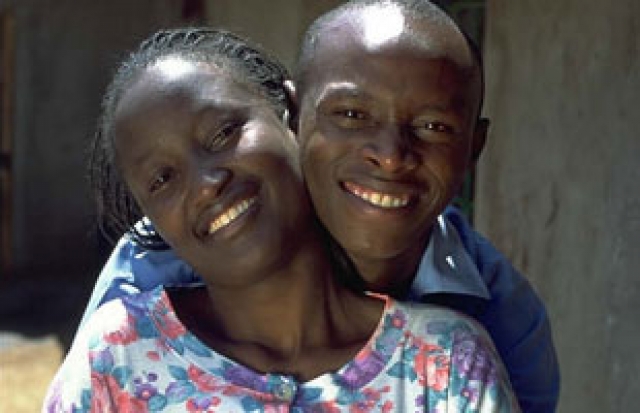How to address the implications of the new WHO guidelines for early HIV treatment in the African Region
 Brazzaville, 5 September 2013 -- The WHO Regional Director for Africa, Dr Luis Sambo, has proposed a set of actions for countries in the region as they implement WHO’s new guidelines on the use of antiretroviral therapy (ART) for HIV prevention and treatment.
Brazzaville, 5 September 2013 -- The WHO Regional Director for Africa, Dr Luis Sambo, has proposed a set of actions for countries in the region as they implement WHO’s new guidelines on the use of antiretroviral therapy (ART) for HIV prevention and treatment.
Dr Sambo’s recommendations are contained in a report to be presented on Thursday to the Ministers of Health from the WHO African Region at their annual meeting – the WHO Regional Committee for Africa -- taking place in Brazzaville, Congo.
The new WHO guidelines, published in June this year, recommend among others, early treatment for people living with HIV and the promotion of treatment for HIV-infected children under five years of age as well as pregnant and breastfeeding women. The guidelines have the potential to reverse the HIV epidemic if fully implemented by Member States. However, there will be related implications.
The number of individuals requiring ART in the region would increase by 53% from 12.4 million to 19 million. This would require an additional US$1 billion per year in new funding.
To meet this cost, the Regional Director proposes that countries allocate more funds to their own national HIV response while mobilizing funding from domestic and international sources.”
In order to reap maximum benefits from the introduction of these guidelines, more people will have to be tested and those found to be infected referred to care. This is a huge challenge in a region where more than half of people living with HIV do not know their status; and many, who test begin treatment when their immune system has been severely weakened.
To address this, Dr Sambo suggests that countries should improve and strengthen their HIV programmes in order to scale-up treatment. This can be done through, among others, establishing working groups to advise on the adaptation and implementation of the WHO guidelines, ensuring that infected people are identified and enrolled in care, and increasing HIV testing and counseling among the general population.
In order to bring ART services closer to the people, countries should decentralize HIV services to primary care settings to improve access and equity. HIV services should also be integrated maternal and child health services, tuberculosis services, STI clinics and other general health services. Furthermore, countries should strengthen HIV care and treatment as a course in health training institutions; train all health workers, including community health workers, to manage HIV as a chronic condition, and update their list of essential medicines to include the newly recommended treatments.
On monitoring treatment response, the Regional Director suggested that countries use viral load testing as the preferred approach to monitoring the success of ART and diagnosing treatment failure in addition to the CD4 cell count – the current tool to assess the immune system of a person with HIV. He adds, however, that lack of laboratory tests for monitoring treatment response should not be a barrier to starting HIV treatment. The importance of national monitoring and evaluation systems to track the implementation of the new recommendations was also highlighted.
It is expected that the full implementation of the new WHO guidelines for early HIV treatment will help to save even more lives and help reduce new HIV infections in the African Region.
----------------------------------------------------------------------------------------------
Technical contact: Dr Emil Asamoah-Odei e-mail asamoahodeie [at] who.int (asamoahodeie[at]who[dot]int) ; tel: + 47 241 39277
Media contact: cam [at] who.int (cam[at]who[dot]int) tel: +47 241 39100


